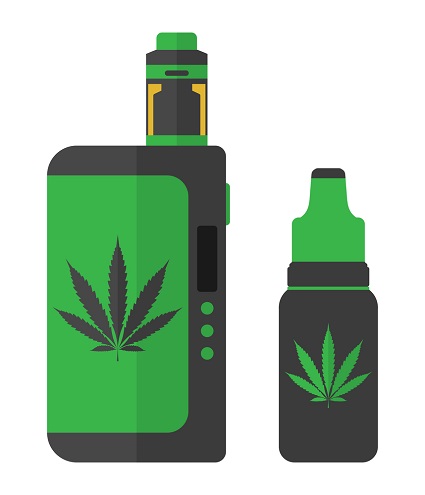
The coronavirus outbreak in China – which has killed hundreds, sickened thousands and led to travel restrictions – is expected to impact marijuana vaporizer companies that depend on Chinese suppliers by interfering with the flow of hardware and other products.
Trade tensions between the United States and China previously caused disruptions in the supply chain.
And this newest issue underscores the vulnerabilities in the global marketplace that vape and other marijuana companies rely on for products ranging from LED lighting to packaging supplies.
“The coronavirus has had a significant impact on the entire manufacturing supply chain in China, which will be felt in the coming months,” said Richard Huang, CEO of Cloudious9, a cannabis vaporizer manufacturer based in Hayward, California.
Huang pointed out that the cannabis vape industry is at its core a hardware business, and nearly all vaporizers, vape cartridges and batteries are manufactured in China.
Arnaud Dumas de Rauly – co-founder and CEO of New York-based The Blinc Group, a cannabis vape hardware manufacturer – said “discontinuity” is the biggest risk to its supply chain.
“If several key raw material suppliers suddenly close down or are several months late in their shipments, it will constitute a threat to our timely fulfillment capabilities,” Dumas de Rauly said.
According to the Centers for Disease Control and Prevention, an outbreak of respiratory illness caused by a coronavirus was first detected in Wuhan City, Hubei Province, China, in December 2019 and continues to expand.
In China, roughly 31,000 people have become infected, and more than 600 have died.
According to Dumas de Rauly, at least 24 provinces, municipalities and regions in China have been told not to resume business before Feb. 10.
On top of the impact to vape manufacturers, he expects this work stoppage to affect all sectors of the cannabis industry, including cultivators using LED lighting, greenhouse structures and packaging and extraction equipment providers.
Huang said the timing of the outbreak was particularly unfortunate since it occurred during the Chinese New Year, when factories were closed and workers were at home. Getting those workers back to the manufacturing facilities will take longer than normal.
“It could be a very difficult year for hardware companies trying to maintain a steady supply of inventory,” Huang added.
While companies currently could have some leeway with existing inventory, Huang expects “pain will be felt” when fast-selling products run low. Those firms that are better prepared with stockpiles of hardware will see an advantage over competitors.
One silver lining: Huang pointed out this could provide an opportunity for some companies to alleviate inventory oversupply caused by the vaping health crisis.
Dumas de Rauly said Blinc has built in redundancies and should be able to maintain steady manufacturing.
“That said, we will most certainly face a few days of delay for materials like 304 Stainless Steel as well as outer-shell finishings like electroplating,” he added.
Because of the travel restrictions from the coronavirus, some of Blinc’s team members have not been able to travel back to the Shenzhen area, a region in China where a large amount of hardware manufacturing takes place. That’s caused some planning issues, Dumas de Rauly said.
Conversely for Cloudious9, one employee had traveled back to China when the outbreak began and is now having trouble returning to the U.S.
“Key product development initiatives will have to be rescheduled until everything restarts,” Huang said.
 Investment value finders Investment value finders
Investment value finders Investment value finders



